Surveillance and data retention
Filter resources
-

Pre-travel controls: Digitalising travel documents
We are responding to a public consultation on the European Commissions’ digitalising travel documents proposal. This proposal promises convenience in travel but could pave the way for biometric mass surveillance and automated discrimination.
Read more
-
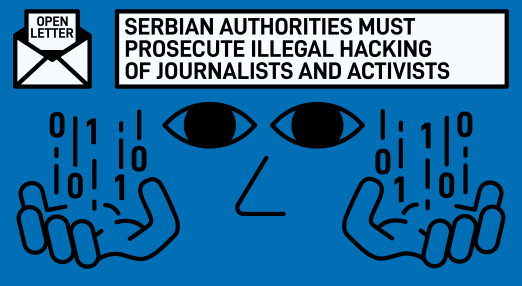
Serbian authorities must prosecute illegal hacking of journalists and activists
Today, 19 December, European Digital Rights (EDRi) and 58 organisations urge the European Union’s institutions to take action to stop the Serbian authorities’ illegal use of spyware to target journalists, activists, and members of civil society.
Read more
-
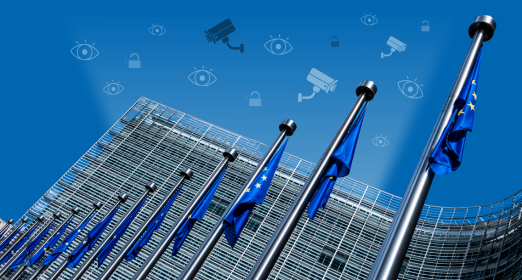
New European Commission confirmed: our takeaways on what to expect
On 1 December 2024, the new political leaders of one of the EU’s most powerful institutions – the European Commission – officially took office. As part of their nomination process, they shared their digital visions for the next five years. Spoiler alert: the fight for digital rights will be as important as ever, with data protection, encryption and privacy all on the chopping block.
Read more
-

Non-fitted devices in the UK Home Office’s surveillance arsenal: Investigating the technology behind GPS fingerprint scanners
Privacy International’s technical research on the so-called non-fitted devices (NFDs) used by the UK Home Office to track migrants shows that these devices are intrusive and stigmatising by design. The use of NFDs is an expansion beyond the use of GPS ankle tags of the UK’s surveillance of migrants who are on immigration bail and subject to electronic monitoring conditions.
Read more
-

Promises unkept: The EU-US Data Privacy Framework under fire
A decade after Snowden’s revelations — and despite the public outrage they sparked — surveillance and mass data collection continue under the EU-U.S. Data Privacy Framework (DPF), despite persistent privacy concerns. This shift reflects a reorientation of EU priorities toward economic and geopolitical interests, risking compromises on privacy and data protection.
Read more
-
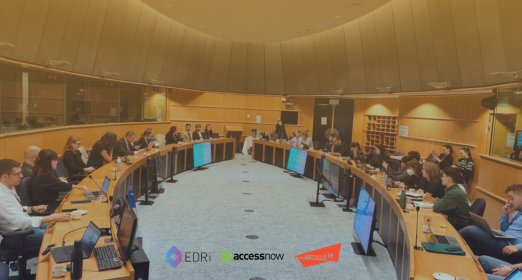
EDRi and members take EU decision-makers through 20 years of digital policy
This September, EDRi, Access Now and ARTICLE 19 took Parliamentarians through a rollercoaster ride of all things digital policy in the European Union. From the early internet and initial experiments in platform regulation, through more recent regulatory innovations, and finally to questions of security and surveillance, we shared a digital rights perspective of the good, the bad and the ugly of digital policy in the EU.
Read more
-

Biometric surveillance in the Czech Republic: the Ministry of the Interior is trying to circumvent the Artificial Intelligence Act
EDRi-member Iuridicum Remedium draws attention to the way biometric surveillance at airports should be legalised in the Czech Republic. According to the proposal, virtually anyone could become a person under surveillance. Moreover, surveillance could be extended from airports to other public spaces.
Read more
-
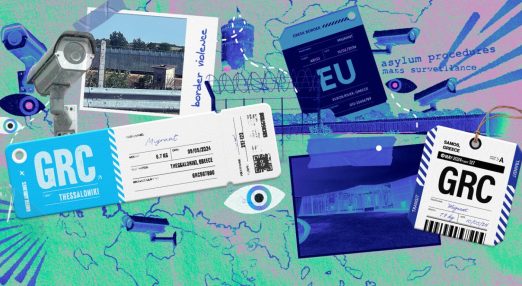
Surveilling Europe’s edges: when digitalisation means dehumanisation
In May 2024, Access Now’s Caterina Rodelli travelled across Greece to meet with local civil society organisations supporting migrant people and monitoring human rights violations, and to see first-hand how and where surveillance technologies are deployed at Europe’s borders. In the first of a three-part blog series reflecting on what she saw, Caterina explains how, all too often, digitalising borders dehumanises the people trying to cross them.
Read more
-
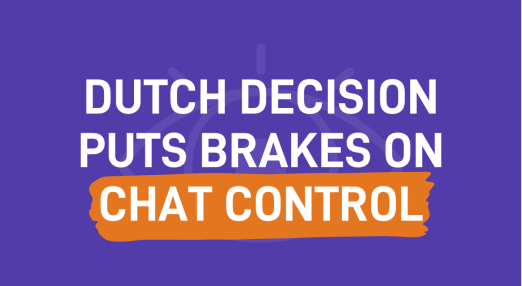
Dutch decision puts brakes on Chat Control
This controversial draft EU law has seen so many twists and turns that it’s giving us whiplash. Under renewed pressure from Hungary’s Viktor Orbán, some lawmakers had hoped they could finally get enough support for the controversial bill this autumn. But following a vital last-minute decision by the Netherlands, we are safe from “Chat Control” – for now.
Read more
-

Enforcing the European Union’s new digital platform laws: How it is going so far
It’s already September and the European Parliament’s summer break is officially over. While the legislature was sleeping, the European Union’s (EU) tech enforcers and their counterparts—Big Tech lobbyists—have been busy plotting their next moves. If you have been away over the summer, here is what you might have missed and what that means for the state of digital rights in the EU
Read more
-

Age against the machine: the race to make online spaces age-appropriate
The race is on to make online spaces age-appropriate, but children’s best interest is no Olympic sport. While the internet was not designed with kids in mind, children, teens and young adults are now spending more time online than ever. Parents use video-sharing platforms to show cartoons to their toddlers, while kids and adolescents play online games, engage in social media, learn through online modules, and fashion their identities through their online activities.
Read more
-
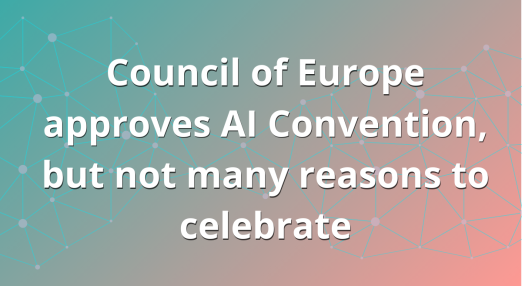
Council of Europe approves AI Convention, but not many reasons to celebrate
EDRi-member ECNL is not rejoicing at the adoption of Council of Europe’s AI Convention because of the significant flaws in the final text
Read more
